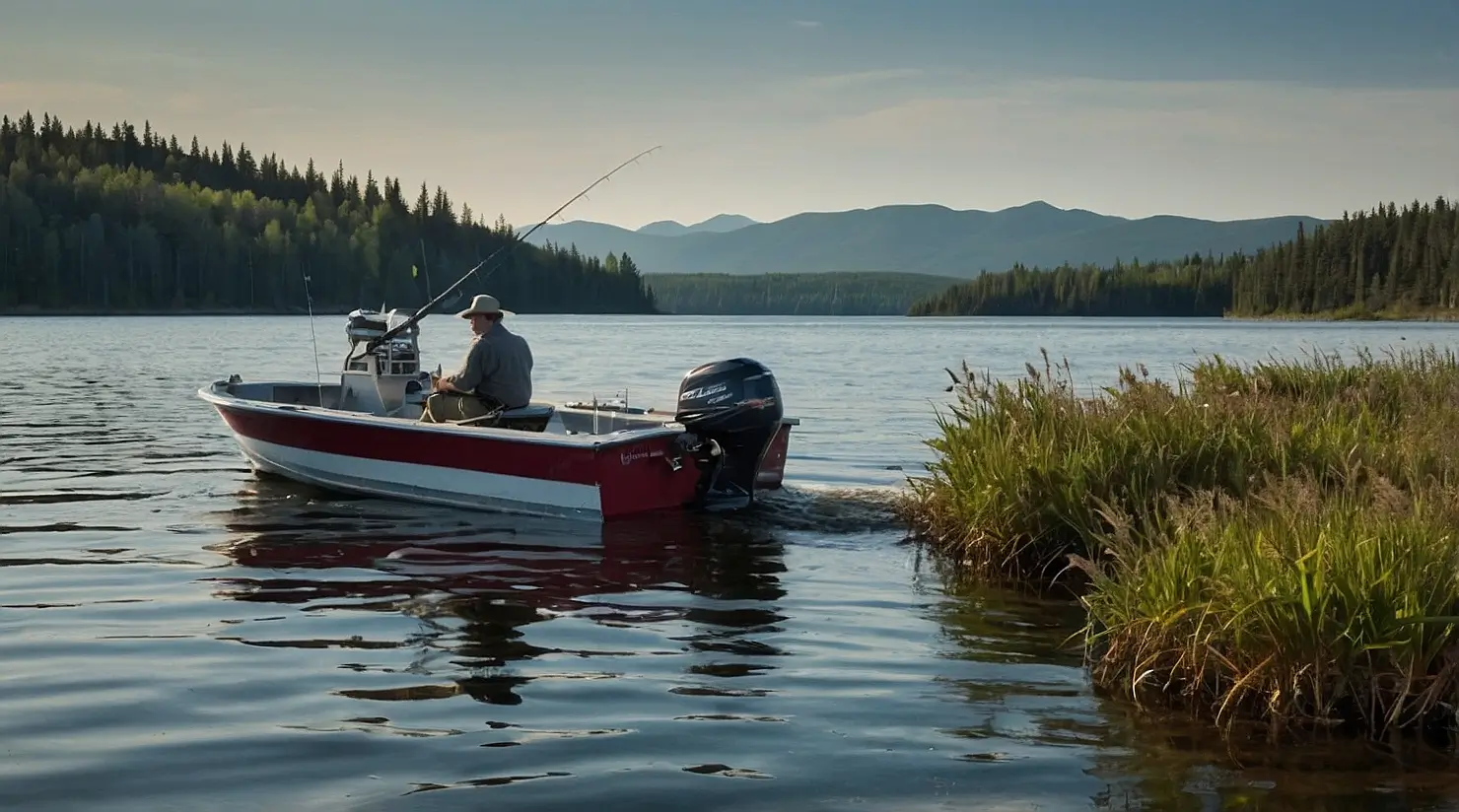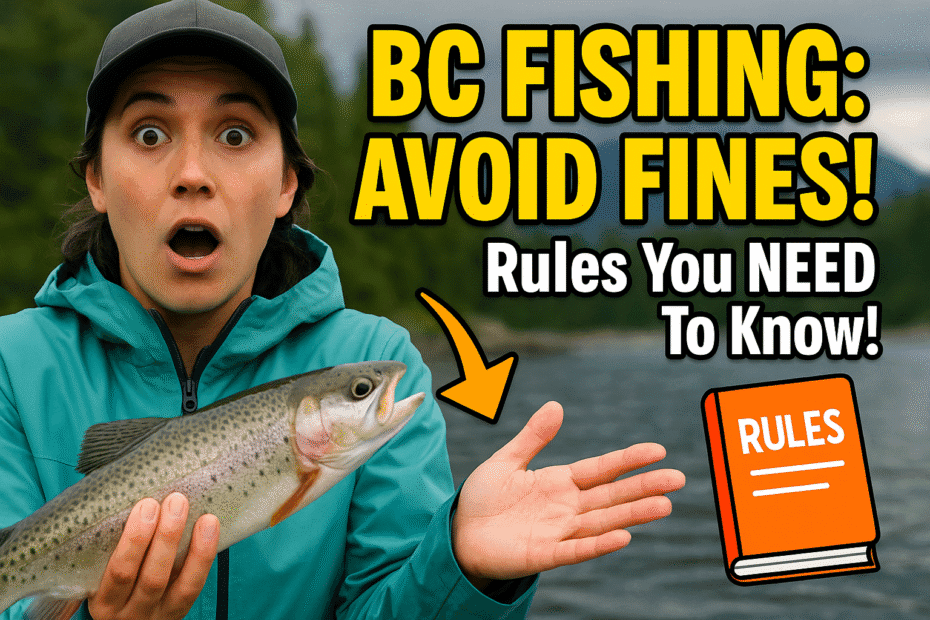British Columbia Fishing Regulations are rules you must follow to fish in B.C. They help protect fish and keep fishing fair for everyone.
In a Nutshell: British Columbia Fishing Regulations
- You will learn about B.C.’s fishing licences.
- You will understand key rules for different fish and areas.
- You will find out how to fish responsibly in B.C.
Love fishing in B.C.? It is a beautiful place to cast a line. Knowing the British Columbia Fishing Regulations helps you enjoy fishing. It also helps protect our waters for years to come.
Estimated reading time: 5 minutes
Who Makes the Fishing Rules?
In British Columbia, rules for fishing in lakes and rivers (freshwater) come from the B.C. government. The Canadian government, often called DFO, makes rules for ocean (tidal or marine) fishing. These rules are updated often.
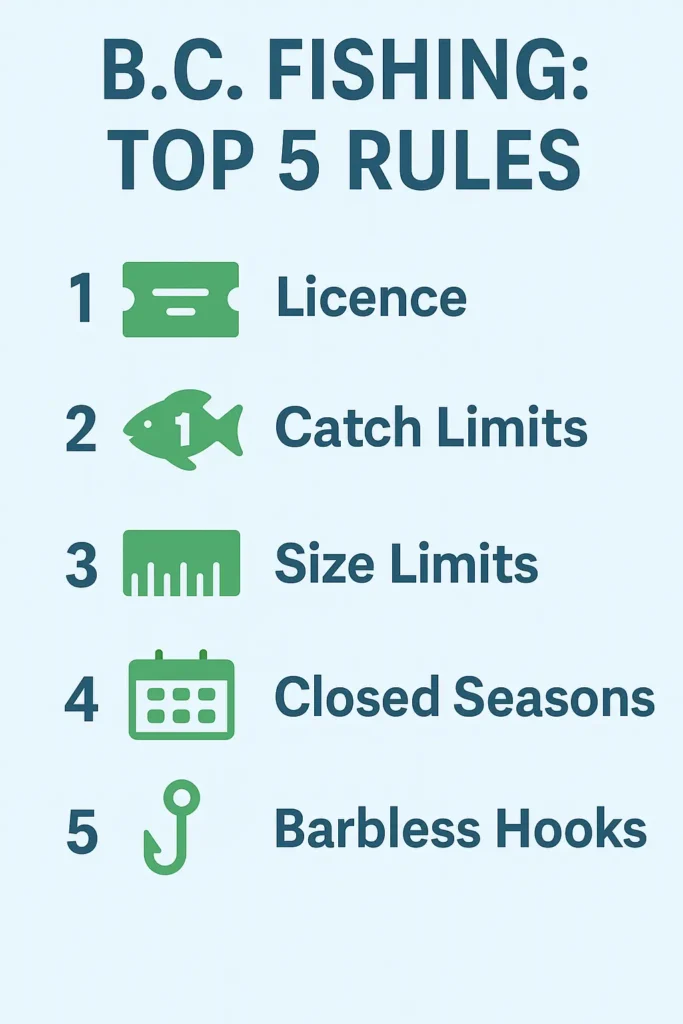
The main rule book for freshwater fishing is the Freshwater Fishing Regulations Synopsis. This book covers rules from April 1, 2025, to 2027. You can find general information on the B.C. government’s fishing page.
Getting Your Fishing Licence
You usually need a licence to fish in B.C. Here is what you need to know:
- Who needs one? If you are 16 or older, you must have a licence for freshwater fishing.
- Types of licences:
- Annual: Good from April 1 to March 31 of the next year.
- Short-term: For 1 or 8 days in freshwater. Tidal waters have 2-day and 5-day options.
- Special licences: B.C. residents 65+ or those with certain disabilities may get cheaper licences. You need papers to prove this. More details can be found from licence vendors.
- Salmon stamp: If you fish for wild salmon in B.C.’s ocean waters, you also need a Salmon Conservation Stamp.
- Where to buy: You can get licences online, at Service BC spots, or from approved sellers. Learning how to obtain a fishing license in Canada can be helpful.
Quick check: See if you need a B.C. fishing licence.
Quick Licence Check
The logic used is to check if the entered age is 16 or greater, then display a general message about licence needs. This widget would be best placed directly after the “Getting Your Fishing Licence” section.
Key British Columbia Fishing Regulations (Freshwater)
British Columbia Fishing Regulations change by area. B.C. is split into 11 regions. Each has rules to match local nature and protect fish.
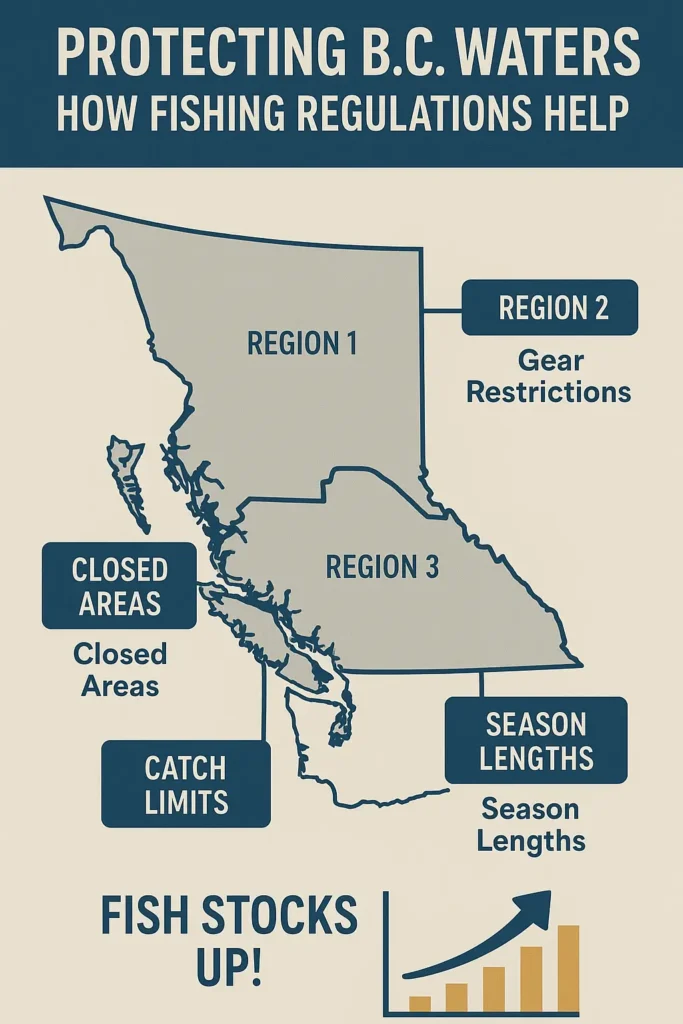
- Different rules by region: For example, Vancouver Island (Region 1) has a bait ban on Haida Gwaii streams from November 1 to April 30. The Lower Mainland (Region 2) may not let you keep char fish under 60 cm.
- Fish-specific limits (quotas):
- Rainbow Trout: Usually 2-5 fish per day, but it depends on the area.
- Bull Trout: Often catch-and-release. Or, you can only keep a very small number, like 2 per day in some spots.
- Kokanee: Limits on how many you can keep are lower in some lakes to help fish numbers grow.
- Closed times and places:
- Many rivers close in spring (April 1 – June 14) so fish can lay eggs. Some rivers, like the Lardeau, might stay open.
- Some areas make you release trout and char in fall and winter.
- Bait rules help stop new pests or sickness in the water.
- Gear: Some places require barbless hooks. This means hooks without the little point that sticks out backward. This rule helps if you release fish.
Rules for Ocean Fishing
Ocean (tidal or marine) fishing rules come from Fisheries and Oceans Canada (DFO). These rules work with B.C.’s own regulations.
- Licence: You need a tidal water fishing licence. Often, you also need a salmon stamp.
- Fish covered: Salmon, halibut, crab, prawns, and rockfish.
- Report your catch: You must report what you catch online. This helps manage fish numbers.
- Protected areas: Some ocean spots are protected. These are called Rockfish Conservation Areas or Marine Protected Areas. They have special rules for fishing.
- Things not allowed: There are rules against certain gear, catch limits, and fishing in closed times. These protect fish.
Fishing Smart and Safe
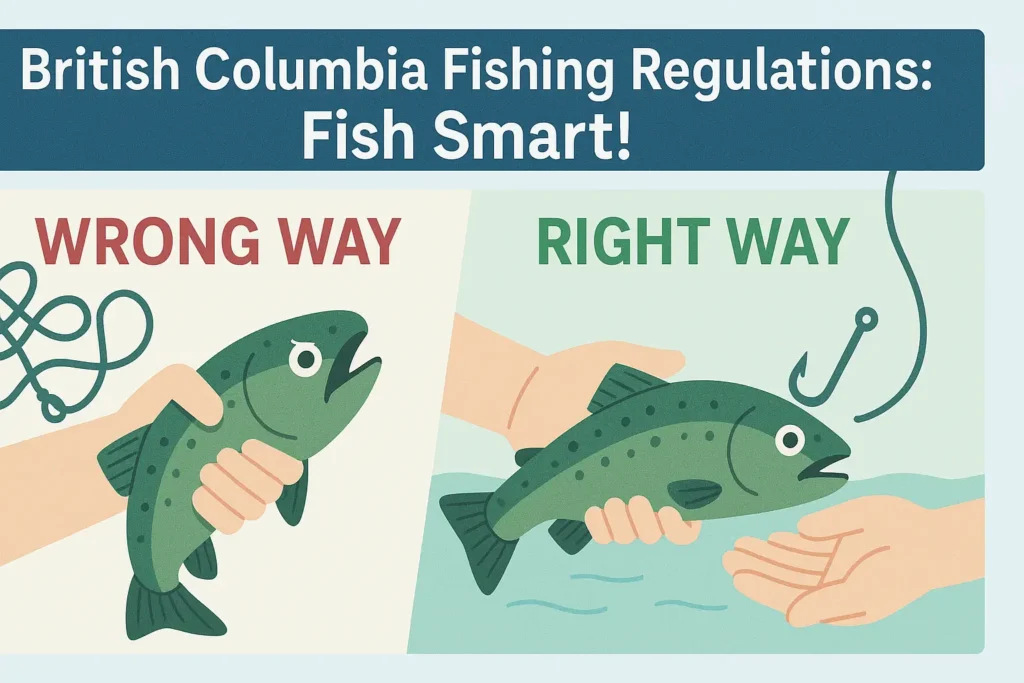
Following the rules helps everyone. It keeps fish healthy for the future.
- Follow limits: Always stick to catch limits and sizes.
- Use right gear: Use only allowed fishing gear.
- Obey closures: Do not fish in closed areas or times. There can be seasonal fishing restrictions in Canada.
- Release fish carefully: If you catch a fish you cannot keep, let it go gently.
- Fines: If you do not follow rules, you can get a fine.
- Report catches: Reporting your catch helps scientists. They use this info to set good rules.
B.C. uses special plans to manage fishing. They close some areas to protect fish when they lay eggs. They also change catch limits based on how many fish there are. Learning about these things helps you be a smart fisher.
- Check Rules Often: Rules can change. Always look at the current B.C. Freshwater Fishing Synopsis before you fish.
- Measure Your Fish: Carry a small ruler. Make sure your kept fish are the right size.
- Know Your Zone: B.C. has different fishing regions. Rules vary, so know where you are.
- Ask if Unsure: If you don’t understand a rule, ask local experts or check official B.C. government fishing websites.
Conclusion
Following British Columbia Fishing Regulations is very important. It helps keep fishing great in B.C. for many years. Have fun, fish safely, and respect the rules.
Your Questions About British Columbia Fishing Regulations Answered (Simply)
What are the new fishing regulations in BC?
Do I need a fishing license in BC if I’m over 65?
Can you use barbed hooks in BC?
What is the fine for fishing without a license in BC?
How many salmon can you keep in BC?
